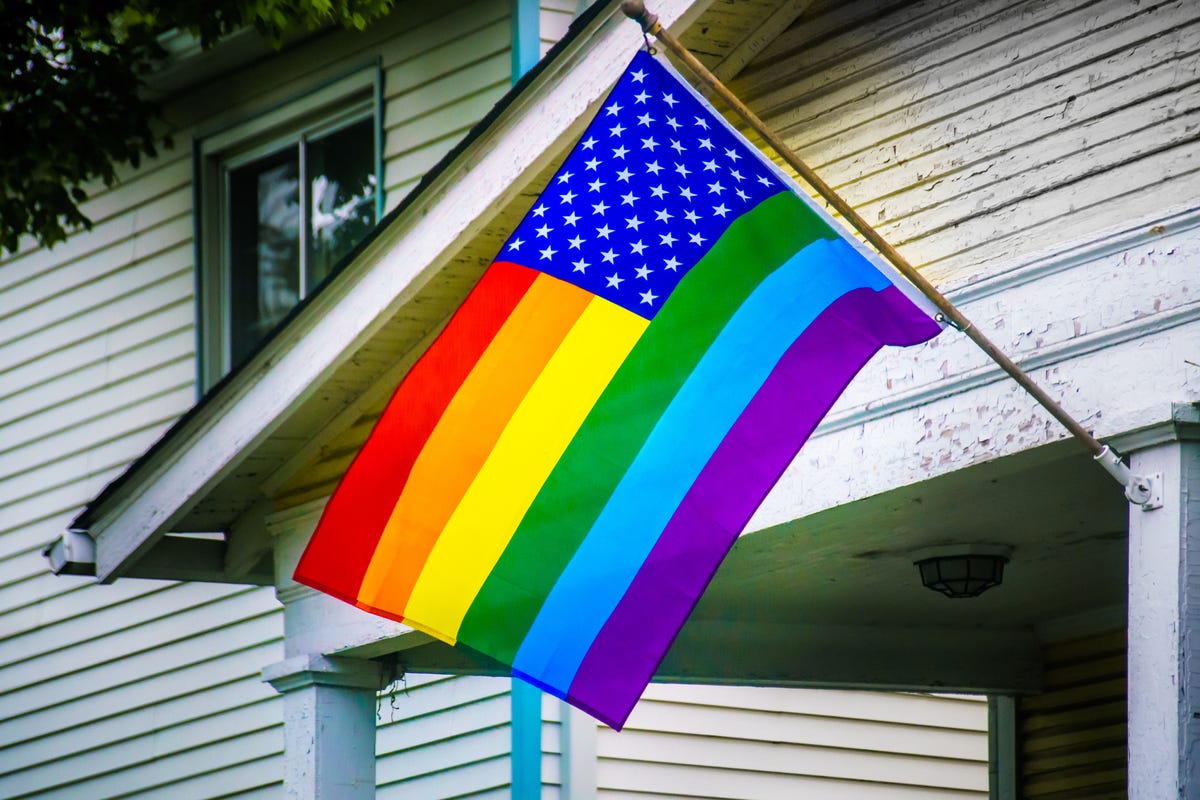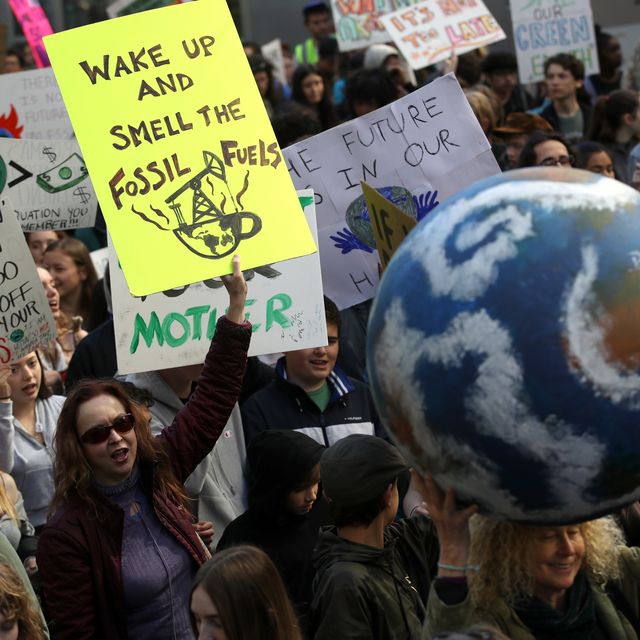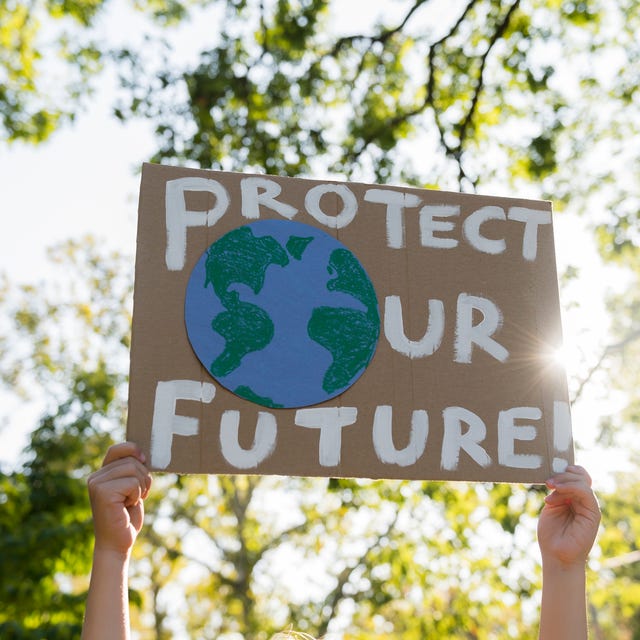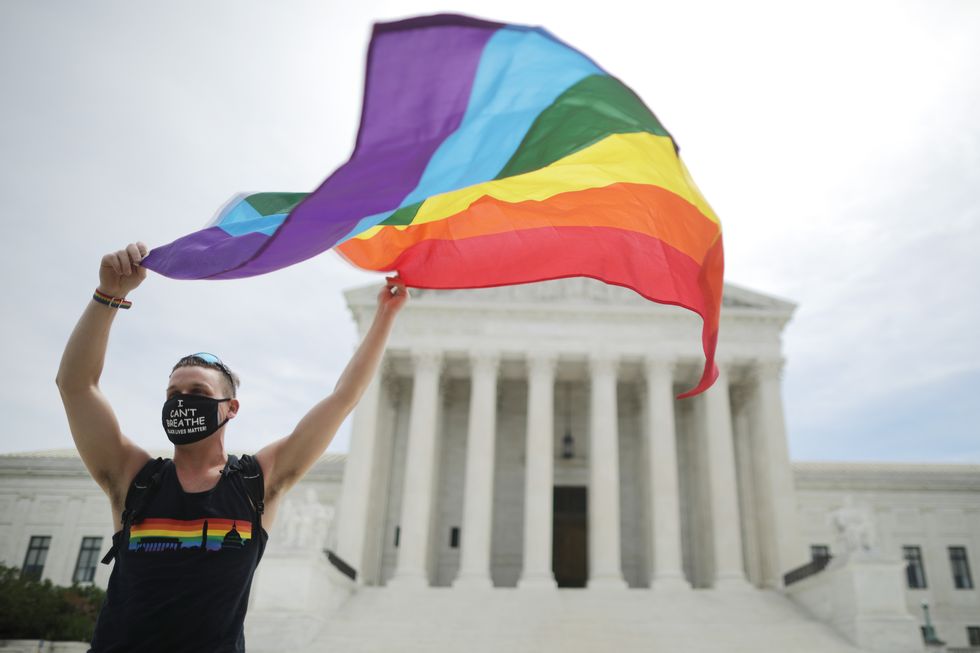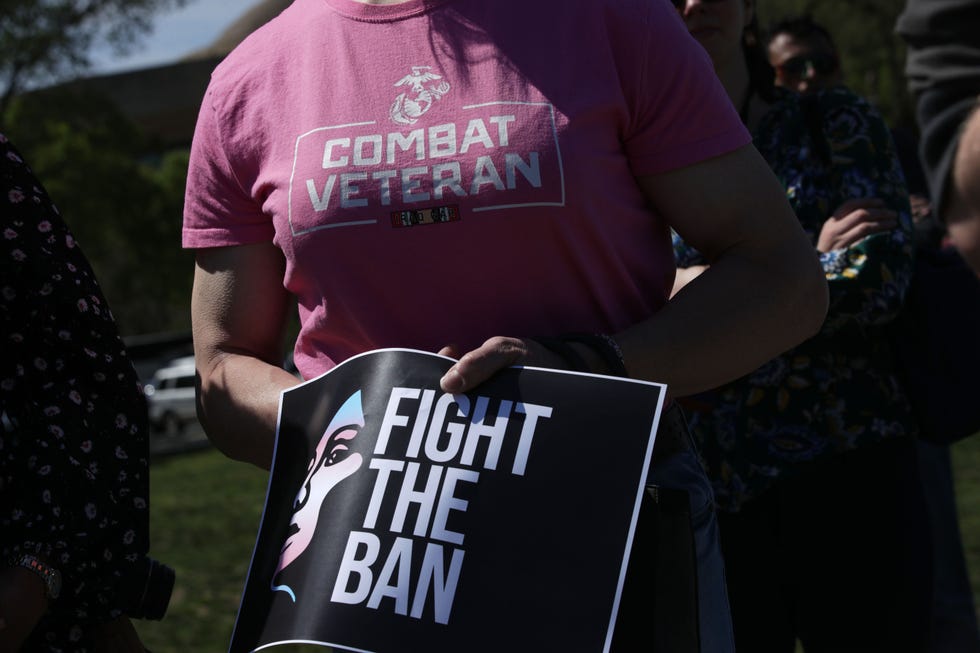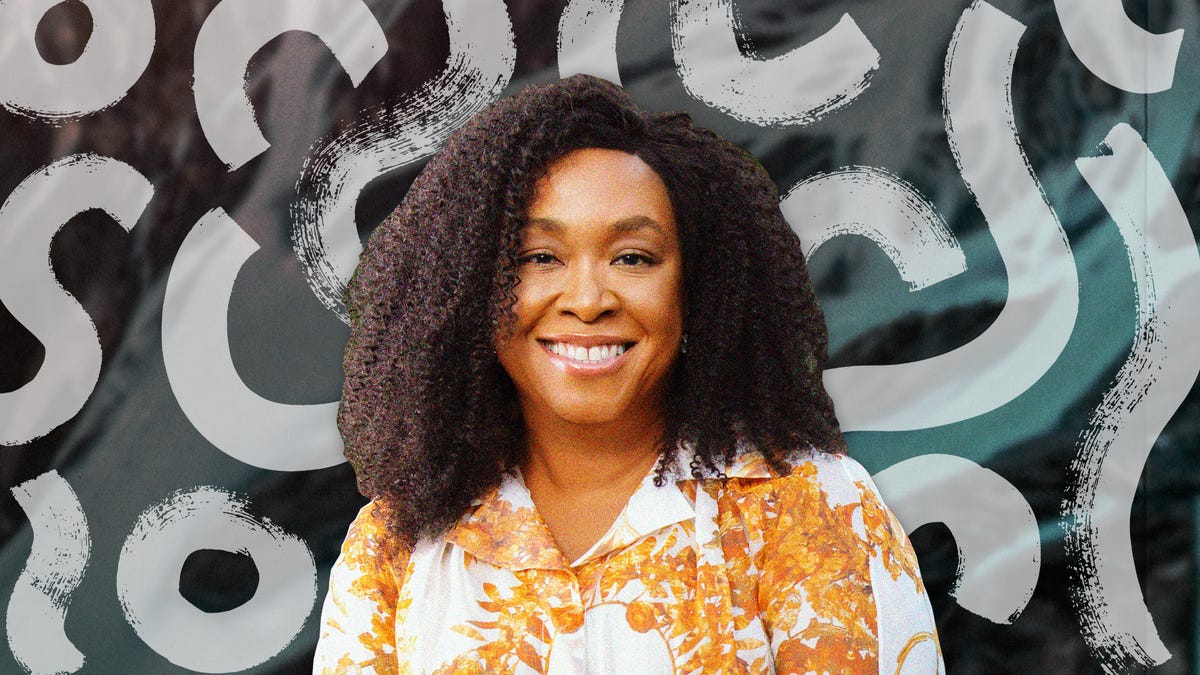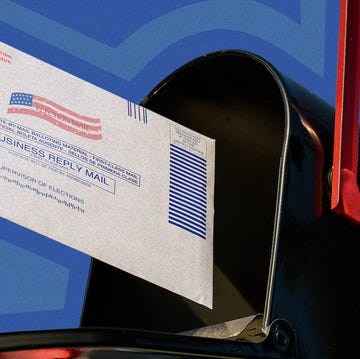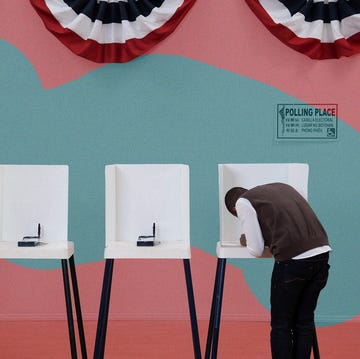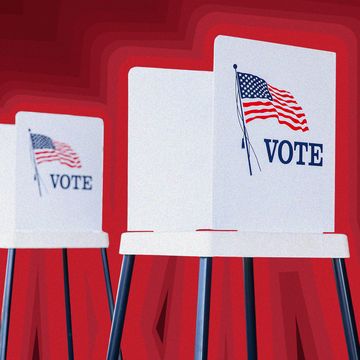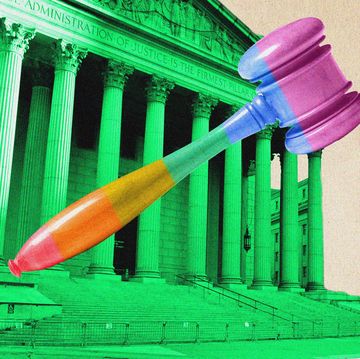The personal is always political, and leading the best lives that we can often hinges on the governments we elect. As we enter the homestretch of 2020 and look to a new president and to newly elected officials to help us weather the many challenges the U.S. currently faces, we find ourselves contemplating: Where do we go from here? From the Covid-19 pandemic to climate change to racial justice and more — there are many big issues we must tackle as a nation. We asked nine thought leaders about how we can create a healthier America and how we move forward now.
Despite much evidence to the contrary during his tenure in the White House, Donald Trump has continually touted that he is an ally to the LGBTQ community. He’s tweeted about it. He’s campaigned on it, attempting to use certain figures — like Richard Grenell, the openly gay former U.S. ambassador to Germany, who also served for three months as the Acting Director of National Intelligence — to sell the narrative. He’s even, in true Trump fashion, happily accepted himself as “the most pro-gay President in American history.”
More on Politics in 2021
But taking even a surface-level look at Trump’s policies paints a very different picture. In the early days days of his presidency, Secretary of Education Betsy DeVos revoked the 2016 guideline that stated that the Higher Education Act was to protect all students on the basis of their gender identity, including by guaranteeing access to sex-segregated activities and facilities in accordance with their gender identity.
When it comes to the transgender community in particular, Trump banned transgender service members from serving in the military, approved the Justice Department’s move to end protections for transgender people in federal prison, and, as recently as this year — and during Pride month no less — when Trump issued no public recognition of the LGBTQ community, his administration rolled back an Obama-era regulation that mandated health care as a civil right for transgender patients under the Affordable Care Act.
In May, the House passed the Equality Act in an effort to guarantee non-discrimination protections for LGBTQ people but, despite support from the majority of the U.S. population and a majority of Republicans, Trump opposed it.
The list is long and lamentable — and we haven’t even touched on what he’s done in the courts, appointing a veritable army of anti-LGBTQ justices to both the federal courts and the Supreme Court of the U.S., thereby threatening marriage equality, which, despite being cemented on June 26, 2015, could face new challenges now that Justice Amy Coney Barrett has joined the bench.
Even so, hope is on the horizon. “Obviously, it’s a really good thing we’ve defeated a president that really pursued an anti-LGBTQ agenda,” says David Stacy, the Director of Government Affairs at the Human Rights Campaign, about Joe Biden’s win. “There’s a lot that can be done administratively that can advance LGBTQ rights even beyond where the Obama administration was. So, I think people should feel good there’s a chance to fix some of the damage and move things forward.”
Indeed, moving things forward is and has long been a goal for the LGBTQ community, which, even in the most progressive of political years, has faced challenges. Thankfully, President-elect Joe Biden has already set out an ambitious platform for LGBTQ+ rights — including passage of the Equality Act in his first 100 days — that is led by a diverse transition team in which, according to his incoming administration, will be comprised of at least 40 percent of individuals from “communities historically underrepresented in the federal government, including people of color, people who identify as LGBTQ+, and people with disabilities.”
Even so, there will still be plenty of work to do to ensure that we can regain much of the ground we lost under the Trump administration. As we look to 2021, here are some of the most crucial issues in the future for continued LGBTQ equality in the United States.
Surviving the courts
“We’re super concerned about where the Supreme Court and lower courts go in the future given the large number of Trump appointments,” says Stacy. “And we know that many of those appointees have a long history of being anti-LGBTQ.” Even in the highest court in the land, fears of partisan ruling have seemingly become a reality. Just last week Justice Samual Alito openly stated his concerns about the future of religious liberty, especially as it applies to Covid restrictions and the Supreme Court's decision in 2015 in favor of same-sex marriage.
“What it comes down to is not whether marriage equality will be reversed entirely,” continues Stacy. “We’re worried about the sort of chipping away of marriage rights for LGBTQ people. Whether that’s through cases like the Masterpiece Cakeshop case or, in Philadelphia, where one of the city’s primary foster care agencies, which is based in the Catholic faith, is refusing to place children with same-sex couples on the basis of their faith, the fear is that, with a 6-3 conservative court, we could be looking at what the late, great Justice Ginsburg called “skim milk marriage,” where there’s inequality in who receives the full federal benefits from legal marriage.”
Organizations like The Victory Institute have called on Biden to commit to appointing the first LGBTQ Supreme Court justice if given the chance. It’s a bold ask, given there is little to nothing a president can do to ensure they gets to make a nomination during his term. Even so, as Stacy reminds us, “We have to remember that a lot can be done in four years under one president, so we have to stay engaged, not just on the federal level, but on the local and state level as well.”
While it’s hard to predict which SCOTUS appointments will be Biden’s to make, he can commit to appointing not just openly-LGBTQ justices and judges, but also executive officials and ambassadors. With allies at different levels of civic duties, the LGBTQ community will have fighters on their side no matter which way the courts decide.
Further, it’s important to remember what the courts have done for LGBTQ rights, and what Biden can do with that. “We had a very good decision from the Supreme Court around employment discrimination,” says Stacy. “They interpreted the sex discrimination protections in Title VII of the Civil Rights Act regarding employment to apply to both sexual orientation and gender identity. We also have sex discrimination and non-discrimination protections in other federal statutes as well. So, the same logic that the Supreme Court used in the Bostock v. Clayton County decision should be applied to the Fair Housing Act, Equal Credit Opportunities Act, and education under Title IX. Under all those areas where federal law currently protects sex discrimination the Biden administration can apply that interpretation quite rapidly to those other areas of law and, of course, then enforce the protection by bringing cases and enforcing the law in that way. So that’s really, really critical in the next four years.”
The Equality Act
As of 2020, 29 states have not outlawed anti-LGBTQ+ discrimination, despite two-thirds of LGBTQ+ Americans in the United States reporting facing, or having experienced, discrimination in their personal lives.
The Equality Act was devised to remedy this lack of protection, applying existing state anti-LGBT discrimination laws nationwide. In summary, the Equality Act is a congressional bill that would amend the Civil Rights Act to prohibit discrimination on the basis of sexual orientation and gender identity in employment, housing, public accommodations, public education, federal funding, credit, and the jury system. As mentioned above, the Supreme Court's ruling in Bostock v. Clayton County determined that the Civil Rights Act protects sexual orientation and gender identity in employment, but these other crucial areas remain undefined.
“The Equality Act passed the House of Representatives back in May of 2019 by a bipartisan vote of 236 to 173,” says Stacy. “And while the Senate received the bill for consideration on May 20 of last year, it hasn’t hit the floor. So we still have work to do to get the bill on the Senate floor — whether Mitch McConnell, if he retains power, will meet us there to push this through remains to be seen. But we’ll keep fighting and we urge others to fight too”
According to a 2020 Gallup poll, 67 percent of Americans approve of gay rights in the United States — that’s a record high. It also means that our Senators need to know that the majority in this country wants to see LGBTQ rights federalized in the U.S. Take time to call your Senators — here’s where to find them — to let them know the Equality Act should be at the top of their agenda for 2021.
Trans rights
“The trans rights movement is about 15 to 20 years behind what I’ll generally call the gay rights movement,” says Stacy. “It just hasn’t had the same kind of cultural backing that it needs to get the attention and progress it deserves. Having more trans representation on screen has been great, with shows like Orange is the New Black and the like, but we need to make trans people more visible everywhere, to have them serving in administrations and the military.”
For the latter, the Obama administration made huge strides in opening pathways for trans folks to serve openly and proudly in the military. In the summer of 2016, former Secretary of Defense Ash Carter announced the termination of the military’s longstanding ban on openly transgender service members. The move further ensured Obama’s historic legacy on LGBTQ+ rights, but the following year, then-President Trump tweeted “[t]he United States Government will not accept or allow transgender individuals to serve in any capacity in the U.S. Military.”
Push back and activist callouts raged, but Trump’s tweet indeed became policy. A month after the tweet, Trump issued a formal memorandum on the ban. Though several courts issued injunctions to prevent its implementation, in January 2019, the Supreme Court lifted the injunctions and on April 12, 2019 the ban fully went into place.
“The trans military ban, we think, is something that the Biden administration can reverse very quickly,” says Stacy. “As we got to 2016, there really was a buy-in at the Pentagon for [allowing trans military members to change], so there’s not, for a lack of a better word, a sales drop that needs to happen to convince the Pentagon leadership to do this in 2021 — that already happened. Folks were on board with the change. I’m not going to say every single general or admiral at the Pentagon was on board with it, but they were largely supportive. Or as much as one could expect. So [re-terminating the ban] is something that could happen fairly quickly in a Biden presidency.”
Seeing trans folks advance to important, publicly visible stations is a crucial step for trans advancement — but it becomes moot if trans lives continue to be in danger on a regular basis.
In October of this year, 33-year-old Felycya Harris was shot and killed in Meadowbrook Park in Augusta, Georgia, becoming at least the 31st transgender or gender-nonconforming person to be killed in the U.S. this year, according to the HRC. Her killing was determined to be a homicide, furthering 2020’s track record to become the deadliest year for transgender Americans. According to Transrespect versus Transphobia Worldwide (TvT), 2020 has seen the deaths of 350 trans people around the globe, which rose from 331 last year.
“We’re super focused on the epidemic of gender violence, especially against Black trans women and trans women of color,” says Stacy of the HRC, which recently released their Blueprint for Positive Change 2020, a brief that includes 85 policy recommendations across the federal government aimed at bettering the lives of LGBTQ individuals. Topline in the brief: Establishing an interagency working group to address anti-transgender violence. “This is a crucial step in moving forward,” Stacy explains. “The goal would be for this working group to collaborate with Black and brown transgender women to come up with workable solutions to eradicate trans violence — and then maintain that communication to determine if these solutions are working and what needs to be changed. It will be an ongoing process.”
Thankfully, Biden’s team has already committed a number of steps in support of trans rights and protections. Among them is pushing for the Violence Against Women Reauthorization Act of 2019 — which would expand LGBTQ protections, including for transgender inmates — to passed and to be signed into law. Further, the Biden platform hopes to include an LGBTQ status in federal data collection. Such a move would allow officials to better track anti-LGBTQ violence by ensuring that the FBI’s Uniform Crime Reports Supplementary Homicide Reports included sexual orientation and gender identity or expression.
While we in the LGBTQ community should breathe a little easier with an incoming Biden presidency, we’ve long known that our work is never done. By beginning to take on these important issues as soon as Biden takes office in January, we’ll ensure that LGBTQ+ lives are not only safe, but prosperous.
Seth Plattner is a Senior Editor at Shondaland.com Follow him on Twitter at @sethplattner.
Get Shondaland directly in your inbox: SUBSCRIBE TODAY
